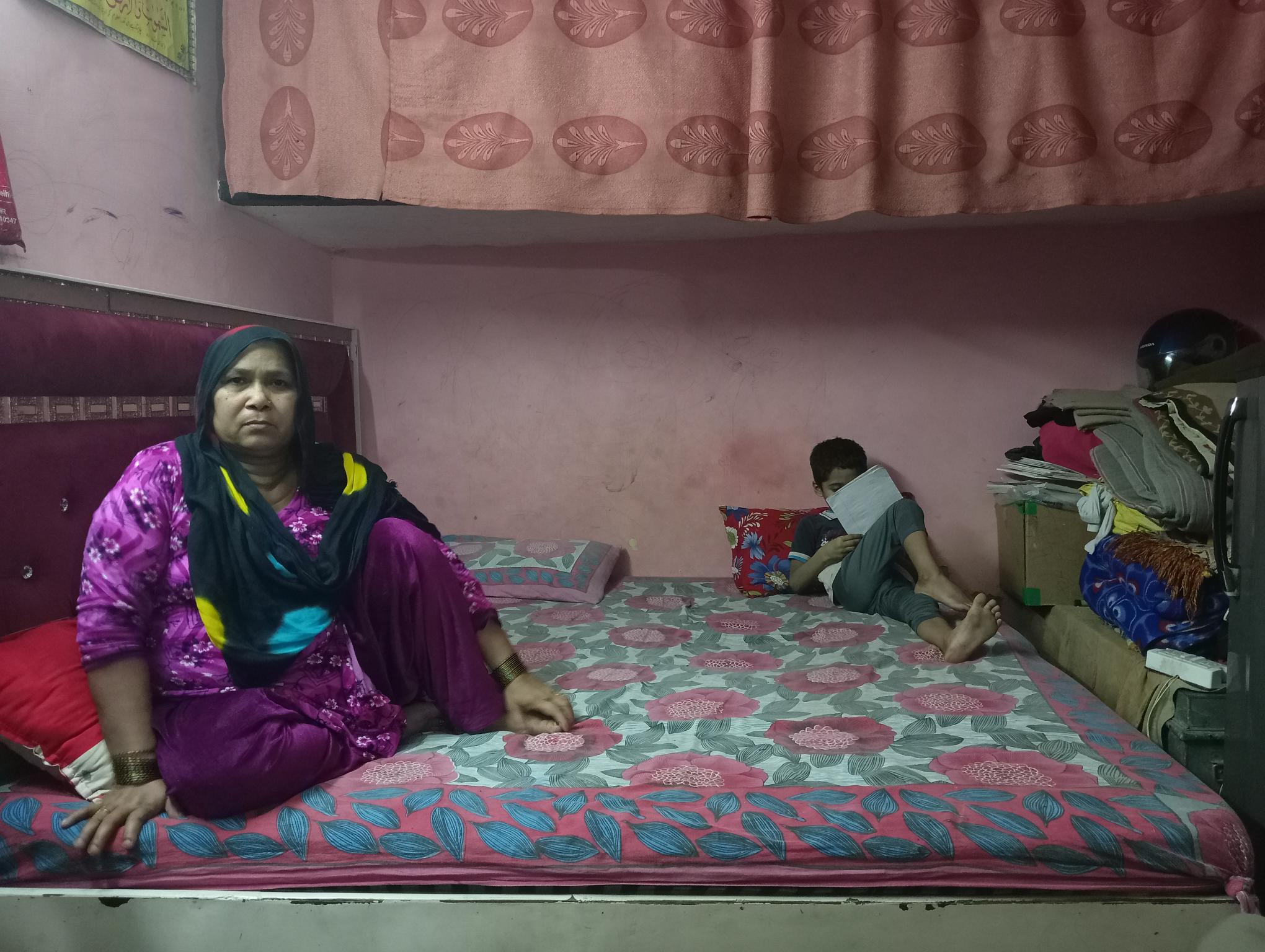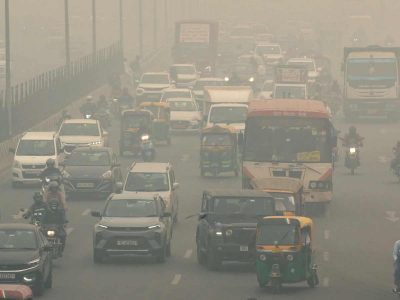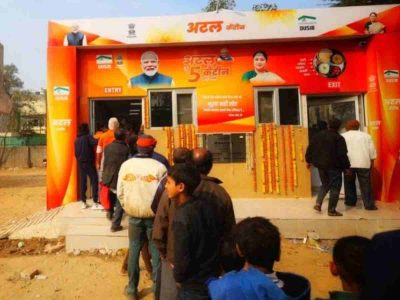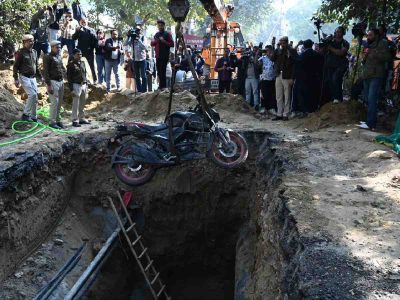Three years after a murderous mob wreaked mayhem in various parts of North-East Delhi, an eerie aura of normalcy prevails in areas that were hit by the 2020 riots. But remnants of the carnage are visible in nook and corner.
Beyond the usual cacophony of the metro rail, traffic and commuters, there is a plaintive past of violence and bloodbath that swept through multiple colonies in North-East Delhi.
“Things are back to normal, but with every tiny opportunity, we are taunted by the word azaadi (the slogan during the CAA-NRC protests) by our Hindu friends as if that is a cuss word. Maybe they won’t mean harm, but it hurts us,” said Mohammad Tousif, a resident of Ganga Vihar.
According to official figures, 53 people were killed out of which 38 were Muslim victims and 15 Hindus.
Festering wound
Fifty-nine-year-old Babu Khan has been perennially ill since the murder of his two sons – Amir and Hashim – whose bodies were fished out of the Bhagirath Vihar drain on February 27.
“Hum toh zinda laash hain ab (we have become living corpses). Every day we wake up only to take care of Amir’s widow, and her three daughters. Who will look after them, if we don’t” the bereaved father said.
“Their brutalised bodies are the last memory I have of my sons. How do you expect a father to live? They were just five minutes away from home when the mob caught hold of them, murdered them in cold blood after confirming their religion and threw their bodies in the drain. We came to know about their death only after the police called us to identify bodies pulled out of the drain when we filed missing report. Hashim was only 17,” he said, recalling the horrific day.
Alima, with whom Amir’s wife Sabina was heavily pregnant during the riots, is a toddler now. “We ensure that she knows her father by showing her photos of him every day,” Sabina said. Today, Alima says “Abbu” whenever she hears “Amir”.
Their eldest daughter Alfisha, who is now eight, regrets Amir’s absence whenever the family is unable to fund her basic needs.
“The other day she began crying when I couldn’t buy her a pencil box, and said Papa zarur laake dete (father would have definitely got me). My heart breaks but what can we do. We have to be really mindful because we are so poor and now there is a void of two working people. They are children, it is difficult to comfort them,” Sabina said.
Dinesh Kumar Khatik, a resident of Karawal Nagar, who had gone out to buy milk a little farther from his locality as shops were shuttered down since February 23, was shot dead by rioters. He was 35.
“It has been three years since we lost him. He was like my friend and guide, which one can’t replace. The shock of losing a family member to a bullet stays with you for years. You have to identify the lifeless body of a family member. It’s a haunting memory. A crushing wound,” said Ashwani Biltoria, Khatik’s nephew. Khatik is survived by his wife and two children.
“What does a compensation do? My uncle is only a memory now. The government can help the victims by employing the kin because it’s difficult for us. With my uncle gone, the source of income and livelihood is also gone. He was a driver,” Biltoria said.
Aftermath
Twenty-four-year-old Akram Khan, who was “star employee” at a garment factory at Old Mustafabad, lost his right arm and a finger on the left hand in a blast during the riots. Today he is jobless.
“I stay with my uncle, trying to learn garment work with one hand, but it is tough. Also, because my left arm has still not fully recovered, I am unable to push myself,” Khan said, adding that hiring an aid for helping him work will add to his already rising expenses.
Khan’s arm was amputated on February 25 at the Guru Teg Bahadur Hospital, but the FIR registered by the police says he received the injuries in an “accident”, where he has been booked for rash driving. Its copy has still not been made available to him by the police.
Sitting beside Khan, his 47-year-old uncle said the communal crack has been glaring since the riots. “We don’t go beyond the Khajuri Khas Chowk after 10pm. This is the new norm for us. This fear is fresh and is far from subsiding,” he said.
Few lanes away, Haroon Ali, the elder brother of Maroof who was shot dead few metres from home, still reels from sleepless nights because of the “gaps in investigation”.
“The police often misbehaves with us whenever we go the police station to enquire about the case. I named 6-7 men while filing the FIR. But the chargesheet has six names, including that of four Muslims, that I did not mention in my complaint at all,” Haroon alleged.
In response, a police source in the DCP office at New Seelampur, called the allegations “baseless” and said that the cops “proceed and investigate based of evidence”. “Besides, there were many officers who were suspended after the riots,” he said, without divulging details.
Searing neighbourhoods
“Our hearts are still heavy. Our families weep from inside, but we cannot express much because what is the point? We try to feign normalcy as much as we can, sometimes out of fear, because we don’t want to rake up old wounds,” said Azam, the son of Mumtaz Hussain – treasurer of Gokalpuri’s Jannati Mosque that was gutted from inside back in February 2020.
While he blamed “outsiders” for the violence, Azam wondered “how did the mob single out only the Muslim properties without local support”.
“We were running helter-skelter and will never forget how no one from our neighbourhood came for anyone’s rescue,” the 28-year-old said, adding that “forgive and forget” is now the only option.
“What other choice do we have? We cannot pack our bags and leave,” Azam rued.
The mosque suffered a loss of Rs 20 lakh. Even now, the top part of mosque where names of Allah were written remain broken and damages are prominently visible.
Most of the Hindu residents in Gokalpuri did not wish to speak to the media. But some maintained that “rioters were all outsiders”. “Why would we want to murder our neighbours? We have to live with them and there is enough friendship between us. We celebrate our festivals together despite religious differences,” said Meenu Gupta, a Kirana shopkeeper at Gokalpuri.
Constant fear and distrust
Women in both Hindu and Muslim-dominated areas have grown wary of male members of other religions since the riots broke out.
“We cannot trust them. Some of them were my son Shadab’s friends and were like my own children. But when riots broke out, they called us sick names from their terraces and did lewd gestures as we ran for our lives. I still get nightmares, and these young men were like my own sons,” Saleema exclaimed.
Saleema and her family had left their home at Khajuri Khaas for two years and returned only in December 2022. “Nowadays, I am scared to even work or go to Hindu shops because all the locals who were involved with the mob are still here, thriving,” she added.
Her son Shadab had watched his motorcycle being burnt by his own friends who once roamed around on it with him. “We do speak nowadays. They regret what they did, but I guess it was all due to the overall environment of hate that time,” said Shadab, who aspired to become a rapper “like Eminem” and owned several posters of the American rap God in his room that was reduced to rubble.
Shadab’s sister was molested during their flight to safety by one of his friends.
In Brahmpuri, around five kilometres from Khajuri Khaas, women said they avoid speaking to Muslim men. “We can never be friends again. Yes, we do business as usual, but on a personal basis we don’t mingle. They killed one of our own,” said Ritu Vashisht, who lives in Brahmpuri, where most residents also claimed that “Muslims were taking up their lands”.
In lane No. 7 of Shiv Vihar, which saw terrible violence resulting in an exodus of Muslim families from the area, a few families keep their important documents packed all the time. “We have learnt our lesson, so we are always prepared to flee,” said Mehreen.
Nectar of hope
Seated with his friends Mohammad Raza and Yogesh Gupta at his shop in Bhagirath Vihar, Mohammad Yameen recalled how rioters targeted his shop and burnt it to ashes on February 25. “I incurred a loss of Rs 20 lakh and I had rented it to a Hindu man. Allah ka shukar hai woh bach gaya (Thank God, he was saved). But they targeted my property because they saw my name in the address,” said Yameen.
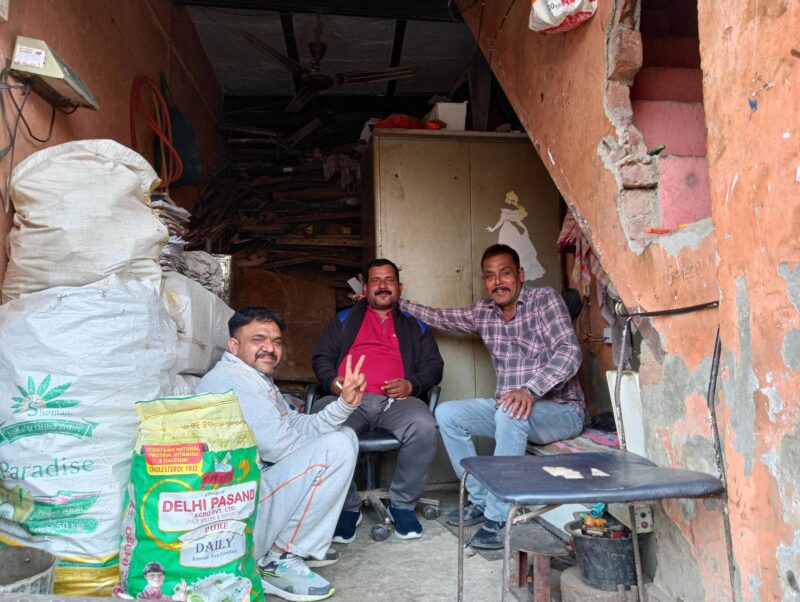
“Yeh sab toh beeti hui baat hai (These are bygones). And they were all outsiders. Not a single local person here was involved with them. We understand that to come to our rescue during riots is easier said than done,” he adds.
“Hum toh sab dost haijee, par haan, mahaul bohot bigad gaya hai pehle se. (Here we are all friends, but yes, things have changed for the worse). Muslims were targeted, killed and robbed and were denied compensation, but the communal harmony has returned. Yahan sab bohot pyaar mohabbat se rehte hai. And Yameen and Raza are my dearest friends. Whole time I am here at his shop,” said Yogesh, breaking into banters about Raza’s sitting posture.
Close to six kilometres away, in Shiv Vihar, Mohammad Irshad shared the same sentiments as Yameen. Irshad, whose TV factory was burnt down, said his neighbours distribute festive sweets whenever there is an occasion.
“Twenty days after the riots, when I returned to my factory, it was all black. Nothing was left. It was my Hindu neighbour who offered all the help that I needed that time to do the immediate fixing,” said Irshad, a resident of Mustafabad. He was not compensated any amount of the Rs 18 lakh that he suffered.
“I am sure there was no local who was involved, but yes, we think that they should have helped us,” said Irshad.
Hindu families Patriot tried to speak to in Shiv Vihar were unresponsive.

